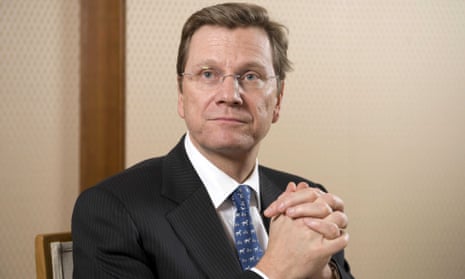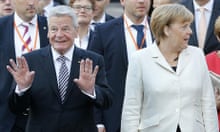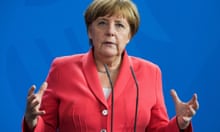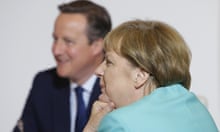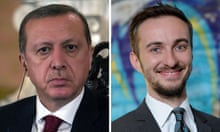Guido Westerwelle, the former German foreign minister, has died aged 54, almost two years after being diagnosed with leukaemia.
Westerwelle served for four years as foreign minister and vice-chancellor in Angela Merkel’s government and was Germany’s first openly gay cabinet minister.
His death was announced on Facebook by the Westerwelle Foundation, which said: “We mourn our leader Guido Westerwelle. He died on 18 March 2016 at Cologne’s University Hospital of complications relating to leukaemia treatment.”
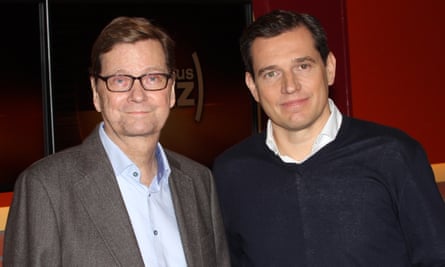
Since the 1980s, Westerwelle had been one of the most established and well-known political faces in Germany. He once famously attracted the wrath of the Belarusian president Alexander Lukashenko after condemning human rights abuses in the country, which he described as “the last dictatorship in Europe”.
Lukashenko shot back with: “It’s better to be a dictator than gay.” Westerwelle responded by saying Lukashenko’s remark “spoke for itself”.
Westerwelle became leader of the Free Democrats (FDP), a pro-business liberal party, in 2001 at the age of 39. He was at the helm when the party entered government in 2009 as the junior coalition partner to Merkel’s Christian Democrats.
He stepped down in 2011 as party leader and vice-chancellor after a poor showing by the FDP in state elections, but stayed on as foreign minister until the federal elections of 2013.
He withdrew from public life following those elections, when the FDP failed to pass the 5% threshold necessary to enter the Bundestag for the first time since 1949.
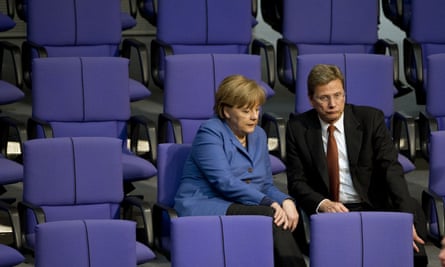
Westerwelle was diagnosed with acute myeloid leukaemia in June 2014. He had undergone chemotherapy and a bone-marrow transplant.
He made his last public appearances in autumn to promote his autobiography, Between Two Lives, in Berlin. In a four-hour interview with Spiegel magazine he talked about his life and his fear of dying.
In 2011, days after David Cameron vetoed an EU-wide treaty change to tackle the eurozone crisis, Westerwelle flew to London for crisis talks with his British counterpart, William Hague, quoting the Simon & Garfunkel song to explain he was there to “build a bridge over troubled water”.
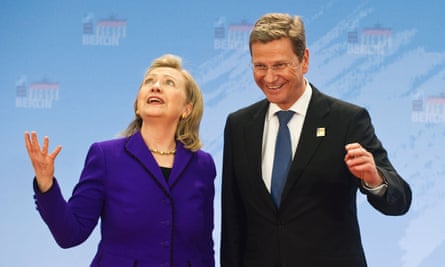
He made a passionate speech in favour of the European Union as he tried to convince the British public they would be better off within the organisation, which he described as being “not only the answer to the darkest chapter in Germany’s history. It is also a life insurance in times of globalisation because no country, not Germany, not Great Britain, not France, is strong enough … to face the challenges of globalisation on its own, so we should stay united.”
A statement issued by Westerwelle’s foundation on behalf of Westerwelle and his husband, Michael Mronz, a media manager, said: “We fought. We had a goal in front of us.” They added they were “thankful for an unbelievably brilliant time together. Love remains”.
Christian Lindner, head of the FDP, held a press conference in which he paid tribute to Westerwelle’s “love of life and his immeasurable optimism”, adding that he had been a “convinced free-market economist, a defender of a tolerant and open society and a staunch European”.

President Joachim Gauck called him a “passionate political person”, praising his contribution to European integration and for his campaign to secure Germany a permanent seat on the UN security council.
Martin Schulz, president of the European parliament wrote on Twitter: “Very sad about the death of Guido Westerwelle. The FDP has lost a defining figure. Thoughts are with his husband, family and friends.”
Omid Nouripour, a leading member of the Greens, tweeted: “Guido Westerwelle was a strident, uncompromising and upright democrat. May he rest in peace.”
